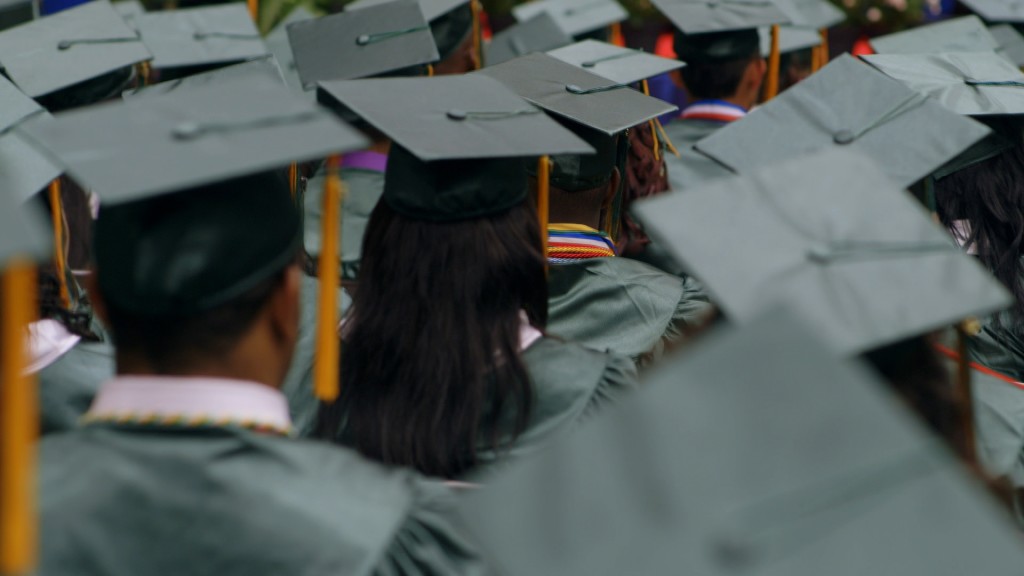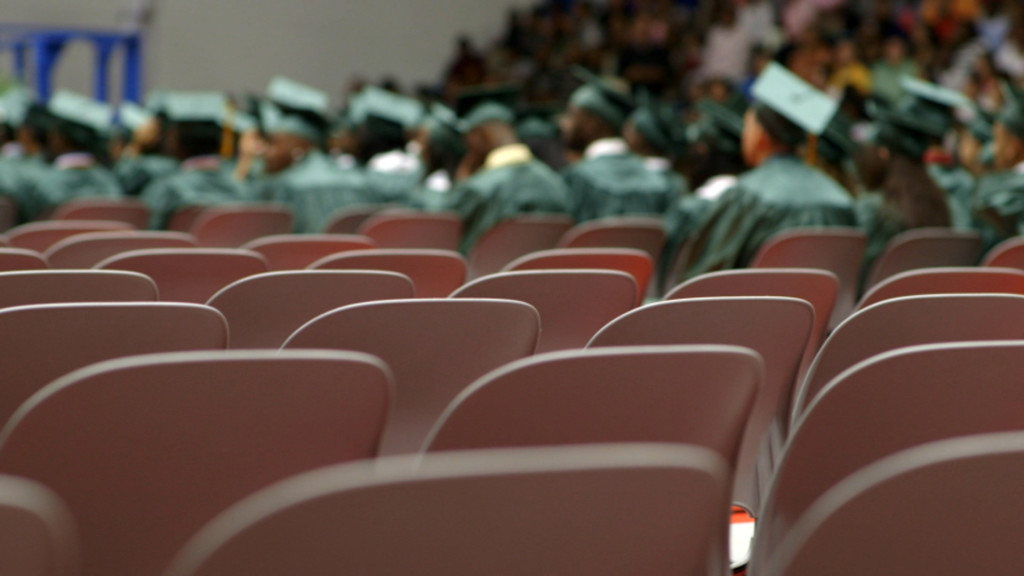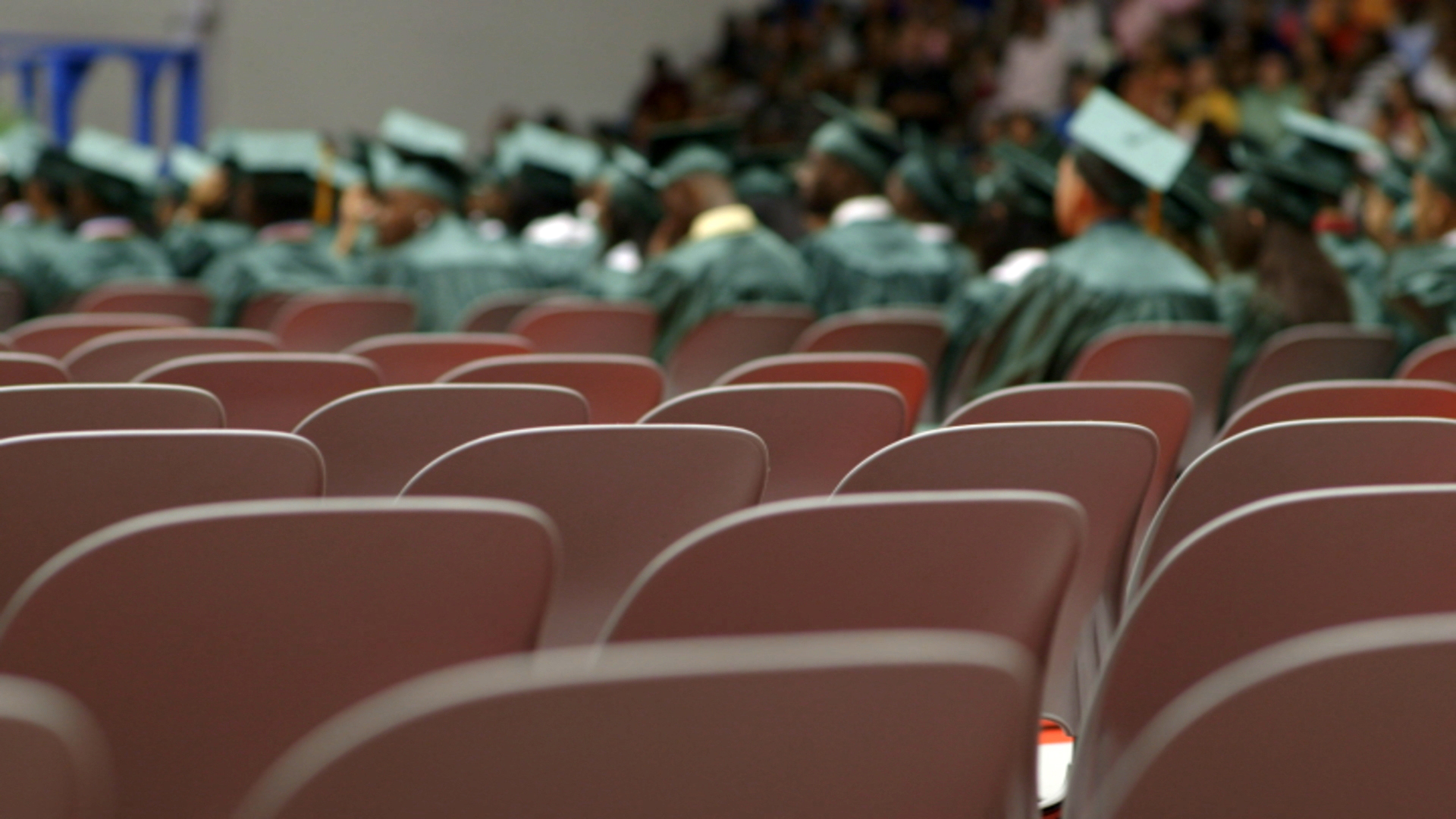How “Private Schools” Help Lower Texas’ Dropout Numbers

September 25, 2012
Share
In Texas, public schools lose funding when students drop out. So administrators are motivated to find creative ways to account for kids who leave their schools.
The state has a history of funny dropout numbers.
Back in 2000, Houston schools were top performers nationwide, hailed as a Texas “miracle,” and used as the model for the federal No Child Left Behind Act. President George W. Bush, impressed by Houston’s success, appointed the city’s school superintendent, Rod Paige, as his secretary of education in 2001.
But in 2003, Robert Kimball, then an assistant principal at Houston’s Sharpstown High School, learned that his school was planning to report zero dropouts, even though he knew there were dozens of kids who had left. He went to the press.
His charges spurred a state audit of 16 Houston high schools that found more than 3,000 dropouts hiding in the data. “The pressure on school principals is intense,” Kimball told FRONTLINE. “If they don’t get that dropout rate down, and they don’t get their students performing well, then they get fired.”
Since then, Kimball said, the culture among top officials in the district has changed — administrators have shown much lower tolerance for false data. Schools also must provide documentation for where students go, making it tougher to fudge the numbers.
But the problem hasn’t gone away. Earlier this year, two Houston principals made headlines when they were indicted for falsifying dropout data at a middle and high school. Investigators alleged they were forging documents to show that students had transferred out of state.
“Every time we crack down on some of these practices of skirting around the true dropout rates, people come up with a new out,” said Robert Sanborn, the president of Children at Risk, a nonprofit education-policy group based in Texas.
Sanborn said that overuse of the “private school” code has become one of the latest ways that Texas high schools can lower their dropout numbers.
But these private schools aren’t what you think.
The state is home to at least 10 programs that offer a high-school diploma for a few hundred dollars and some completed workbooks, or an exam, submitted online.
Critics call them “diploma mills,” but what they do is legal. The programs are protected under a Texas law that allows students to complete their studies through unregulated, unaccredited home-schooling programs, which it considers private schools.
The law was originally championed by conservative Christian families who wanted to home-school their children according to their beliefs. It says that diplomas issued to such students have the same value as those earned at an accredited public school or private school. That means that Texas public universities and colleges have to accept them — although the military, and most out-of-state schools do not.
Lawrence Miles, the founder and academic director of SouthWest Academy Home School Program, a small, family-run online program based in Houston, said that many of his students have been referred to his program by their high schools, who encouraged the would-be dropouts to get a diploma online. If kids can show the school a diploma from one of these programs, they won’t count as a dropout.
In Miles’ program, students pay $300 to take a 200-question test. One they pass, they receive a diploma. Miles said his staff offers to go over the test material ahead of time in the office with the students, to ensure they’re prepared to pass the test. He’s graduated about 2,000 people so far.
“Yes, we dumb down the system,” Miles told FRONTLINE. “We provide a lower-level method of getting a high-school diploma.” But not all high schools are equal, he noted. Degrees from Texas’ top and worst performing high schools both are considered valid, he said, so why not count SouthWest Academy among them?
Terry Grier, the superintendent of Houston Independent School District, said he wasn’t personally aware of Houston school administrators directing kids to these programs, but said he’d be “naïve” to think it doesn’t happen. He added: “One of our principals would not want me to find out that was happening. That would be very upsetting and wouldn’t be tolerated.”

Related Documentaries
Latest Documentaries
Related Stories
Related Stories
Explore
Policies
Teacher Center
Funding for FRONTLINE is provided through the support of PBS viewers and by the Corporation for Public Broadcasting, with major support from Ford Foundation. Additional funding is provided the Abrams Foundation, Park Foundation, John D. and Catherine T. MacArthur Foundation, Heising-Simons Foundation, and the FRONTLINE Trust, with major support from Jon and Jo Ann Hagler on behalf of the Jon L. Hagler Foundation, and additional support from Koo and Patricia Yuen. FRONTLINE is a registered trademark of WGBH Educational Foundation. Web Site Copyright ©1995-2025 WGBH Educational Foundation. PBS is a 501(c)(3) not-for-profit organization.





















